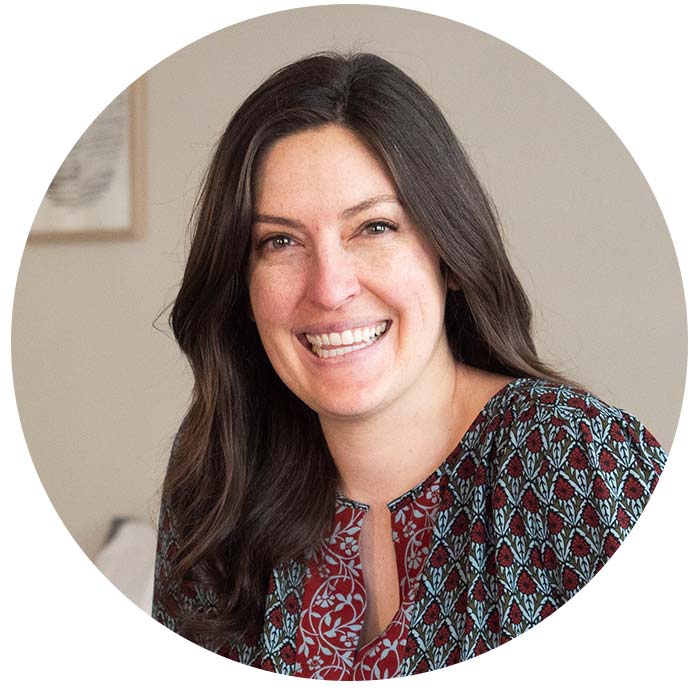How much do you really know about sleep? There are a number of popular myths and misunderstandings about sleep that you’ve likely heard. For example, that alcohol helps you sleep, or that insomnia is exclusively characterized by trouble falling asleep at night, or that you can catch up on sleep during the weekend if you are sleep deprived during the week.
These myths may seem pretty harmless, but in reality they can contribute to sleep deprivation, which affects your health in multiple ways. As we’ve written about extensively, sleep deprivation can affect your concentration, age your skin, lower your sex drive, contribute to weight gain, and increase your risk for heart disease, stroke, high blood pressure, and diabetes.
All that’s to say: Being informed about sleep, and making sure you get enough high-quality sleep, can make a major difference to your health and wellbeing. Here are seven common sleep myths, debunked.
[Editor’s Note: The content provided on this site is for general informational purposes only. Any information provided is not a substitute for professional medical advice. We encourage you to consult with the appropriate health expert if you have concerns.]
Myth #1 – Alcohol Can Help You Sleep Better
 It’s easy to see why people believe that alcohol can help you sleep better, because drinking alcohol can make you feel tired. Plus, many people find they fall asleep more quickly after a drink or two.
It’s easy to see why people believe that alcohol can help you sleep better, because drinking alcohol can make you feel tired. Plus, many people find they fall asleep more quickly after a drink or two.
In fact, alcohol can induce drowsiness in the short-term, Dr. Nikola Djordjevic, founder of MedAlertHelp, tells us. “This is due to the stimulation of GABA receptors in the brain, which inhibit neuronal firing, causing relaxation.”
However, even though alcohol might help you fall asleep faster, the reality is that drinking alcohol has a negative effect on sleep quality overall.
In 2013, experts reviewed 27 different studies about alcohol and sleep (1). “According to the findings, alcohol does allow healthy people to fall asleep quicker and sleep more deeply for a while, but it reduces rapid eye movement (REM) sleep,” WebMD explains.
So, while alcohol does indeed help you fall asleep faster and enjoy some deep sleep, it has a negative effect on your sleep overall due to the fact that you’ll spend less time in REM sleep. As Medical News Today explains, REM sleep is where most dreaming happens, and researchers believe it plays a role in memory consolidation, learning, and mood.
Here are a few other ways that alcohol can negatively affect your sleep: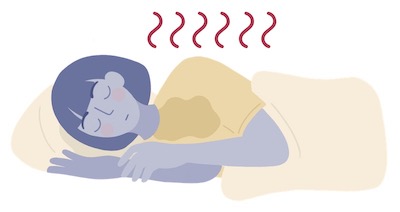
- Alcohol is a diuretic, meaning it acts on your kidneys to increase the amount of urine your body produces. Thus, consuming alcohol can make it more likely that you’ll need to wake up to use the bathroom in the middle of the night.
- It can also affect your breathing during sleep. Irshaad Ebrahim, medical director at The London Sleep Centre, told WebMD that “Alcohol also suppresses breathing and can precipitate sleep apnea.”
- Drinking may contribute to night sweats, which can disturb your sleep. “With alcohol intake, when the heart rate speeds up, the blood vessels in the skin tend to widen,” Medical News Today explains. “This can trigger the release of sweat.”
- According to the Mayo Clinic, drinking alcohol may trigger sleepwalking episodes, which can seriously disrupt sleep.
In order to make sure alcohol has a minimal effect on your sleep, try to avoid drinking alcohol at least two to three hours before you go to bed.
Myth #2 – You Need At Least 8 Hours Of Sleep At Night
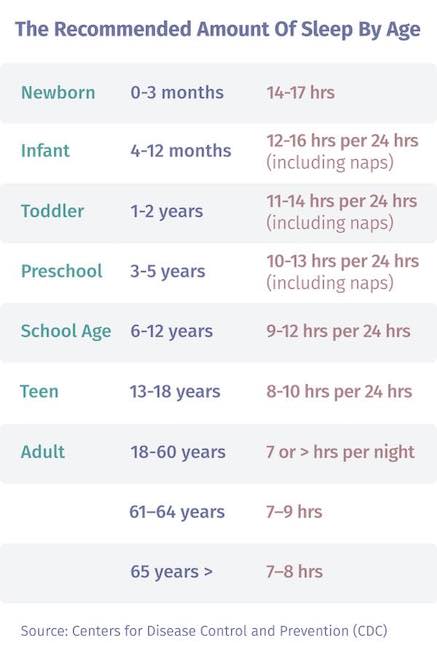 You may have been told that you need to get at least eight hours of sleep each night. But in reality, your ideal nightly sleep amount depends on a number of factors. These include your age, activity levels, and other considerations. While it’s true that around one in three Americans is sleep deprived, sleeping too much has also been linked to harmful health outcomes including an increased risk of heart disease.
You may have been told that you need to get at least eight hours of sleep each night. But in reality, your ideal nightly sleep amount depends on a number of factors. These include your age, activity levels, and other considerations. While it’s true that around one in three Americans is sleep deprived, sleeping too much has also been linked to harmful health outcomes including an increased risk of heart disease.
Everyone is different, and some people may find that they naturally sleep less or more than the recommended amount. You may find that the amount of sleep you need changes as you age or during the short-term if you are pregnant, recovering from an illness, returning from a long trip, adjusting to a new schedule, and so on.
Additionally, some people may get some of their sleep during the day in the form of naps (which is particularly common for children and older adults), rather than all at once at nighttime.
“Older people may wake more frequently through the night and may actually get less nighttime sleep, but their need for sleep is no less than that of younger adults,” the Cleveland Clinic explains. “Older people tend to sleep more during the day because they may sleep less during the night.”
If you are concerned that you are getting too much sleep or not enough sleep, you can discuss your sleep patterns with your doctor to see what they think. One surefire sign you might need more sleep: consistently feeling tired during the day.
Myth #3 – Snoring Is Annoying But Harmless
Loud snoring can actually sound quite funny — when it isn’t keeping you up all night, that is. The Mayo Clinic explains that many people snore and there are a ton of reasons for it, ranging from nasal congestion to the amount of tissue in the back of your throat.
However, snoring can also be a symptom of obstructive sleep apnea, which is a potentially serious health condition. Per the Mayo Clinic, there are three different types of sleep apnea:
- Obstructive sleep apnea, which is caused by the throat muscles relaxing and narrowing your airway, which can slow or cut off your breathing. This is the most common form of sleep apnea
- Central sleep apnea happens when your brain does not send the necessary signals to the muscles in your body that control breathing during sleep
- Then there is complex sleep apnea syndrome, which is when a person has both obstructive sleep apnea and central sleep apnea
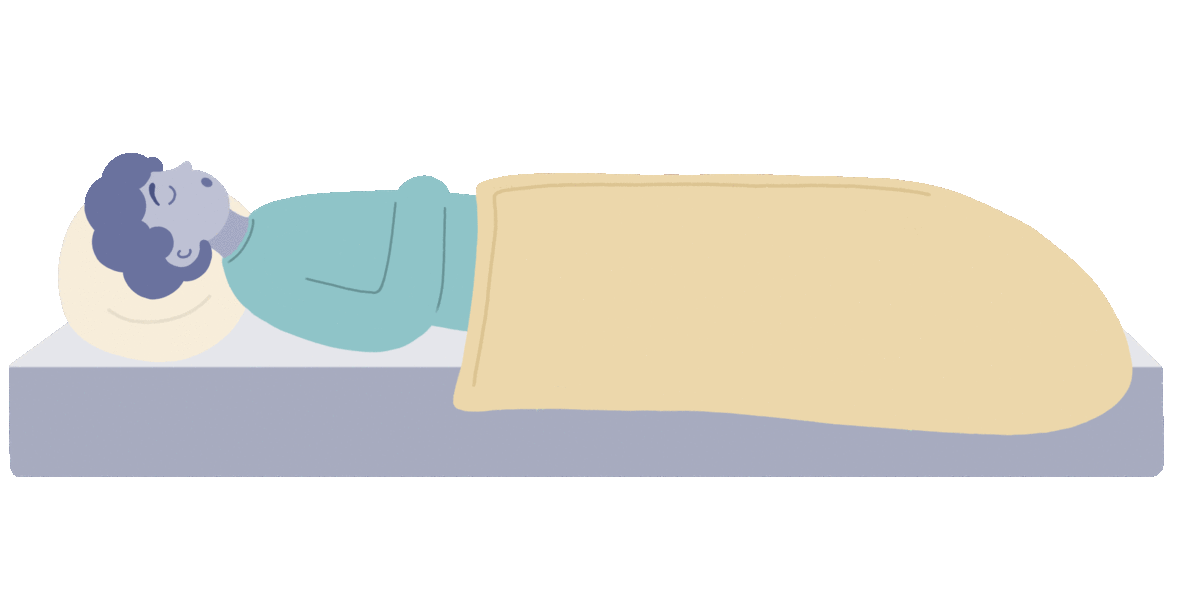 According to the Cleveland Clinic, “Sleep apnea is characterized by episodes of decreased airflow or complete lack of airflow throughout the night. People with sleep apnea may remember waking up frequently during the night gasping for breath. The breathing pauses may be related to reduced blood oxygen levels, which can strain the heart and cardiovascular system. Over time, sleep apnea can increase the risk of cardiovascular disease if it is not treated.”
According to the Cleveland Clinic, “Sleep apnea is characterized by episodes of decreased airflow or complete lack of airflow throughout the night. People with sleep apnea may remember waking up frequently during the night gasping for breath. The breathing pauses may be related to reduced blood oxygen levels, which can strain the heart and cardiovascular system. Over time, sleep apnea can increase the risk of cardiovascular disease if it is not treated.”
LiveScience says sleep apnea is super common, affecting around 18 million Americans. Symptoms of sleep apnea include:
- Snoring
- Feeling excessively sleepy during the day
- Gasping or choking at night
- Having a headache when you wake up
- Waking up with a dry mouth or sore throat
- Breathing that stops or slows during sleep (as noticed by a partner)
The good news is that there are many ways to treat sleep apnea if you do have it. If you are worried that you have sleep apnea, speak to your doctor, who can either diagnose you based on symptoms you describe or refer you for a polysomnogram (an overnight sleep test) to check for signs of sleep apnea. If you are diagnosed with it, treatment options include:
- Wearing a mask called a continuous positive airway pressure device (CPAP) during sleep
- Sleeping with a mouthguard that can position your jaw and tongue in a way that keeps your breathing clear
- Surgery to remove excess tissue
Myth #4 – You Can Catch Up On All The Sleep You Missed By Sleeping In Over The Weekend
It can feel impossible to get enough sleep during the week, whether you spend your weekdays at the office, wrangling your kids, or juggling a college workload. It’s easy to push off sleep in favor of everything else you have to get done, thinking you’ll get to “catch up” by sleeping in on the weekends. Unfortunately, it’s not that easy.
Ever heard of sleep debt? That’s a term describing the difference between how much sleep you really need and how much you actually got. For example, if you really need 7.5 hours per night to feel your best but spent two nights last week up with a sick kid (so you only got 5.5 hours of sleep on those nights), your sleep debt for the week adds up to four hours. Or maybe you are chronically sleep-deprived and only get six hours of sleep every night when you really need eight, but you have no chance to catch up on sleep due to your schedule.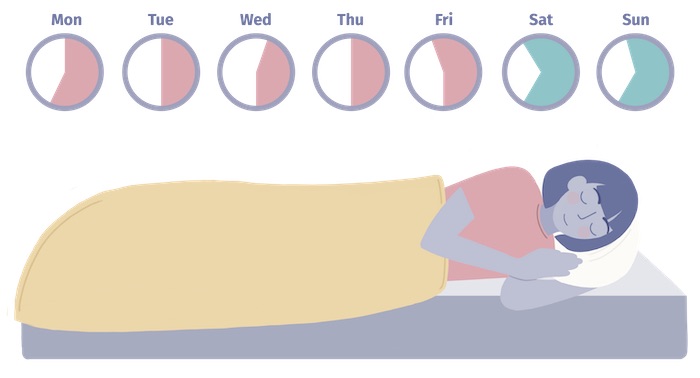
According to Sleep.org, sleeping in on the weekends can help you combat a small sleep debt of an hour or two, “But if you’re under-sleeping by, say, an hour every night, Monday through Friday, you’ll end up with a whopping five hours of sleep debt by the time Saturday rolls around… and sleeping in too much on Saturdays and Sundays can make things worse by throwing off your regular snooze schedule and making it harder to sleep on Sunday night.”
Translation: If you are chronically sleep deprived, a couple of Saturday morning lie-ins are not going to fix the problem. Instead, you need to find a way to get more sleep on a regular basis. Some ways to get more sleep include:
- Going to bed at an earlier time each night
- Waking up at a later time in the morning
- Taking daytime naps (ideally, these naps should be shorter and take part during the first half of the day, so they don’t interfere with your sleep at night)
- Practicing good sleep hygiene such as keeping the bedroom cool, dark, and quiet
Myth #5 – Never Wake A Sleepwalker
 Have you ever been told that it’s dangerous to wake up someone who is sleepwalking and that you should gently guide them back into their bed without waking them? The truth is a little bit more complicated.
Have you ever been told that it’s dangerous to wake up someone who is sleepwalking and that you should gently guide them back into their bed without waking them? The truth is a little bit more complicated.
It’s difficult to say how common sleepwalking is, but a review of research from 2016 looked at 51 different studies and concluded that around 6.9 percent of people will sleepwalk at some point in their life (2). It’s also much more common for children to sleepwalk than adults.
The American Academy of Sleep Medicine (AASM) Sleep Education site says that a sleepwalker may:
- Leave their bed and walk around their bedroom or the rest of the house
- Sit up in bed and open their eyes
- Have a “glassy-eyed” expression
- Successfully complete routine tasks like brushing their teeth
- Act confused
- Not wake up easily when you try to rouse them
- Fall asleep easily once steered back to bed
- Not remember their sleepwalking experience at all
- Have sleep terrors
Something important to note: Occasionally, sleepwalkers could put themselves in danger. For example, a sleepwalker could injure themselves by falling down the stairs or attempting to use kitchen tools, such as knives, while sleeping. Generally, experts recommend that you try to steer a sleepwalker back to their bed without waking them up. However, if that’s not working or it looks like the sleepwalker could harm themselves, it’s okay to wake them.
As for the best way to wake up someone who is sleepwalking, Sleep.org recommends you stand some distance away from them and make short, sharp noises. This is because a sleepwalker might be disoriented when they wake and could potentially lash out. When they wake up, gently let them know that they were sleepwalking and take them back to their bed.
Myth #6 – The Definition Of Insomnia Is Struggling To Fall Asleep At Night
The American Sleep Association estimates that around 70 million people suffer from insomnia. But what actually is insomnia, anyway? Many people believe the textbook definition of insomnia is struggling to fall asleep at night. That’s technically true, but insomnia can also take other forms.
For instance, people with insomnia may:
- Struggle to fall asleep
- Struggle to stay asleep
- Wake up too early in the morning and not be able to fall asleep again
People who struggle to stay asleep or experience early wakeups may not realize these are potential symptoms of insomnia. According to the Mayo Clinic, possible symptoms of insomnia include:
- Trouble falling asleep at night
- Waking up during the night
- Waking up too early in the morning
- Still feeling tired after a night’s sleep
- Feeling tired or sleepy during the day
- Feeling irritable, anxious, or depressed
- Struggling to pay attention, focus on tasks, or remember things
- An increased number of mistakes or accidents
- Worrying about sleep a lot
The Mayo Clinic says it’s more common for people to experience short-term (acute) insomnia, which lasts for days or weeks and is typically caused by “stress or a traumatic event.”
However, some people experience long-term (chronic) insomnia, defined as insomnia that lasts for a month or more. In these cases, the Mayo Clinic says, “insomnia may be the primary problem, or it may be associated with other medical conditions or medications.”
There are a bunch of different treatment options for insomnia, depending on what is causing the condition. For example:
- Sometimes, insomnia is related to lifestyle choices such as consuming caffeine too close to bedtime, eating late at night, or trying to sleep in a bright or loud room. Practicing good sleep hygiene may help relieve symptoms of insomnia.
- If your insomnia is linked to anxiety, treating your anxiety with therapy or medication may resolve the insomnia
- If a medication you take is causing sleep problems, your doctor may adjust the dosage or switch your medications. (Always speak to a physician before making any changes to prescribed medication on your own)
- Relaxation techniques and meditation may help treat insomnia
- Depending on your symptoms, your doctor may prescribe a sleeping medication
There are also a number of natural cures for insomnia, ranging from physical activity to herbal teas.
Myth #7 — Exercising Right Before Bed Will Keep You Awake
Have you ever been told that exercising before bed will make it harder for you to sleep? As it turns out, that isn’t necessarily true.
WebMD explains that exercising can raise your core body temperature, raise your heart rate, and cue your body to release epinephrine (adrenaline) which stimulates your system. While it seems like these outcomes would interfere with sleep, evidence suggests otherwise.
 In a review of literature published in February 2019 in the journal Sports Medicine, researchers looked at 23 different studies about exercise and sleep (3). The conclusion? The existing studies “do not support the hypothesis that evening exercise negatively affects sleep, in fact rather the opposite.”
In a review of literature published in February 2019 in the journal Sports Medicine, researchers looked at 23 different studies about exercise and sleep (3). The conclusion? The existing studies “do not support the hypothesis that evening exercise negatively affects sleep, in fact rather the opposite.”
They found that people who didn’t exercise in the evening spend 19.9 percent of their sleeping time in deep sleep — and those who did exercise in the evening, even for just a short amount of time, spent 21.2 percent of their sleeping time in deep sleep.
Obviously, everyone is different and some people may find that working out at night does interfere with their sleep. And the research did suggest that extremely strenuous workouts can make it tougher to sleep if you don’t give your body enough time to recover before going to bed. But overall, there’s no reason to believe that a moderate nighttime workout will mess with your sleep.
“We have solid evidence that exercise does, in fact, help you fall asleep more quickly and improves sleep quality,” Dr. Charlene Gamaldo, M.D., medical director of Johns Hopkins Center for Sleep at Howard County General Hospital, said in an interview. “But there’s still some debate as to what time of day you should exercise. I encourage people to listen to their bodies to see how well they sleep in response to when they work out.”
Experts aren’t totally sure why exercise helps you sleep, but there are a number of plausible theories:
- Exercise boosts endorphins, which can reduce stress. This may make it easier for stressed or anxious people to fall asleep.
- Exercise may increase your buildup of adenosine, which is a hormone related to fatigue. It’s also a neuromodulator that promotes sleep by suppressing arousal, Djordjevic says.
- Because exercise raises your body temperature, the resulting fall in temperature may help you fall asleep. (This is more relevant for evening workouts).
What are the best types of exercise for sleep? Sleep.org recommends the following:
- Pilates
- Yoga
- Stretching
- Relaxation Exercises
- Meditation
But of course, the “best” exercise is whatever exercise you will actually do.
As for how much you should exercise to reap benefits for your sleep, that depends on your own personal health and preferences. The National Institutes of Health recommends that healthy adults aim for at least 150 minutes of exercise a week, however, you want to split it up — e.g. 30 minutes five days a week, 60 minutes twice a week and 30 minutes once a week, and so on. You should also make sure your exercise routine doesn’t exacerbate any existing injuries, and if you are pregnant or undergoing any kind of medical treatment, check in with your doctor before starting a new workout routine.
To Sum Things Up
There’s a lot of misinformation out there about sleep, but the truth is that getting enough good-quality sleep each night is incredibly important for your health. Debunking sleep myths, learning more about your sleep cycle, exercising regularly, and practicing good sleep hygiene can help set you up for maximum sleep success.
[Editor’s Note: The content provided on this site is for general informational purposes only. Any information provided is not a substitute for professional medical advice. We encourage you to consult with the appropriate health expert if you have concerns.]
This post was originally published in February 2019. It was updated in April 2019 to reflect Dr. Djordjevic’s feedback.
Featured image: Kleber Cordeiro/Shutterstock
Additional Resources:
- How Much Sleep Do I Need? — CDC
- Sleep and Sleep Disorder Statistics — American Sleep Association
- Tips For Better Sleep — CDC
- 22 Facts About Sleep — The Cleveland Clinic
- 7 Mattress Myths
References
- Ebrahim, I.O., et al. “Alcohol and Sleep I: Effects on Normal Sleep.” Alcoholism: Clinical and Experimental Research, vol. 37, no. 4, 2013.
- Stallman, H.M., and Mark Kohler. “Prevalence of Sleepwalking: A Systematic Review and Meta-Analysis.” Plos One, vol. 11, no. 11, 2016.
- Stutz, J., et al. “Effects of Evening Exercise on Sleep in Healthy Participants: A Systematic Review and Meta-Analysis.” Sports Medicine, vol. 49, no. 2, 2018, pp. 269–287.

